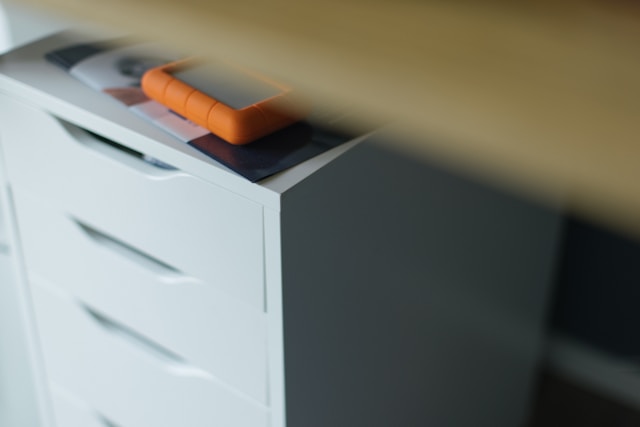How to Choose a UV DTF Printer for Commercial Use

In the printing industry, innovation has completely reshaped the way businesses operate. Among the latest breakthroughs, the UV DTF printer has become a game-changer for companies looking to expand into commercial printing. Unlike traditional methods, UV DTF technology allows direct printing on specialized transfer films that can be applied to glass, plastic, wood, ceramics, and metal with outstanding durability and vibrant quality.
For commercial use, however, buying a UV DTF printer is not just about choosing a machine—it’s about investing in the long-term growth and reputation of your business. Let’s explore the factors you should consider to make the right decision.
Understanding Your Business Needs:
The first step in selecting a UV DTF printer is identifying the nature of your business. Are you targeting bulk corporate orders, or focusing on customized one-off designs?
- For high-volume businesses: Speed, stability, and the ability to handle continuous printing are essential.
- For boutique or niche businesses: Precision, versatility, and color accuracy take priority.
Knowing your business direction ensures you invest in a printer that fits your operational model instead of one that limits you.
Key Features to Consider:
1. Print Quality and Resolution:
Commercial clients expect sharp and vibrant prints. A UV DTF printer with at least 1440 dpi resolution guarantees clear details for everything from promotional mugs to large decorative panels. Crisp lines and vivid colors directly impact customer satisfaction.
2. Durability of Prints:
One major advantage of UV printing is its resistance to scratches, water, and fading. For businesses producing items like signage or outdoor décor, this durability is crucial. Always check whether the printer supports premium UV inks that ensure long-lasting quality.
3. Speed and Efficiency:
In commercial printing, deadlines are strict. Printers with faster output rates allow you to handle bulk orders without sacrificing quality. Remember, speed should always be balanced with precision—cutting corners on quality damages brand reputation.
4. Size and Compatibility:
Different machines support different media sizes. For commercial purposes, it’s better to choose a UV DTF printer that offers wider print widths, giving you flexibility to handle both small items (like keychains) and large surfaces (like acrylic boards).
5. Maintenance and Ease of Use:
Downtime can hurt commercial operations. Choose a printer that offers simple software, automatic cleaning systems, and user-friendly controls. This ensures your staff can operate it smoothly without constant technical intervention.
Budget and Long-Term Investment:
While budget matters, choosing the cheapest option often backfires. Low-quality machines may lead to:
- Frequent breakdowns
- High ink wastage
- Poor technical support
Instead, treat your purchase as a long-term business investment. Spending more on a reliable, professional-grade printer can save thousands in repair and downtime costs later.
At this stage, platforms like dtflinko.com are valuable. Trusted suppliers not only provide multiple models for comparison but also ensure warranty, technical guidance, and after-sales support—factors that are equally important as the printer itself.
Industry Applications of UV DTF Printers:
UV DTF technology is incredibly versatile, making it useful across many commercial sectors:
- Promotional Products: Printing logos on mugs, bottles, phone cases, or pens.
- Interior Décor: Customizing tiles, glass panels, and wooden frames.
- Retail Branding: Creating eye-catching signage and point-of-sale displays.
- Corporate Gifts: Offering personalized, high-quality gifts that leave a lasting impression.
- Fashion Accessories: Printing directly onto leather, acrylic, or other non-traditional surfaces.
By investing in a UV DTF printer, you expand your product line and attract diverse clients, boosting both sales and brand authority.
After-Sales Support and Warranty:
Even the most advanced printers require technical help over time. A supplier that offers reliable after-sales service, quick spare part availability, and warranty coverage is essential. Without this, even a high-quality printer may cause downtime that hurts business.
Scalability for Future Growth:
Your commercial printing business may be small today, but future demand could grow rapidly. Choosing a UV DTF printer that supports upgrades or modular add-ons ensures you can scale up without replacing your entire setup. Future-proofing your investment is a smart business strategy.
Cost vs. Benefit Analysis:
When evaluating cost, consider both upfront investment and long-term benefits:
- Upfront Cost: Professional-grade printers cost more initially but offer stability.
- Operating Cost: Efficient machines consume less ink and energy.
- Profit Margin: High-quality, durable prints allow you to charge premium prices.
Thus, while initial cost may seem high, the ROI (return on investment) in terms of speed, efficiency, and customer satisfaction makes it worthwhile.
Final Thoughts:
A UV DTF printer is more than just another piece of equipment—it’s a business enabler that determines the growth, reputation, and success of your company. By carefully considering your business needs, printer features, durability, after-sales support, and long-term scalability, you can make a confident decision.
Investing in the right printer ensures that your commercial printing venture not only meets today’s demands but also thrives in the competitive future of digital printing.



